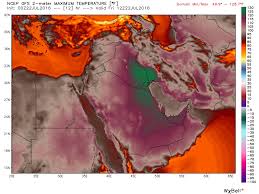
The Importance of Weather in Outdoor Activities
Weather plays a critical role in outdoor recreation, influencing not only safety but also the enjoyment of activities such as hiking, biking, and camping. Identifying the best weather conditions is essential for both casual explorers and serious adventurers. As climate patterns continue to shift due to global changes, understanding local weather conditions has become increasingly important for planning purposes.
What Constitutes the Best Weather?
Generally, the best weather for outdoor activities is characterized by moderate temperatures, ample sunshine, and minimal precipitation. Ideal temperatures typically range from 15°C to 25°C (59°F to 77°F), and a day with limited cloud cover enhances visibility and warmth. Additionally, low humidity levels can significantly improve comfort for individuals engaging in strenuous activities.
Regional Variations in Weather
Across Canada, the definition of the best weather varies. In coastal areas like British Columbia, summer temperatures are usually moderate, making it a prime location for mountain biking and water sports. In contrast, central provinces like Alberta experience diverse weather, with many preferring the slightly cooler and drier conditions found in late spring or early fall for hiking. Meanwhile, the humid summers of Ontario can be ideal for beach-goers but less favorable for high-intensity sports.
Seasonal Considerations
Seasons also dictate what constitutes the best weather for outdoor activities. Each season brings unique opportunities and challenges. Spring and fall are often lauded for their crisp air and vibrant landscapes, often recognized as excellent times for both hiking and photography. Summer is popular for camping but requires planning around heat advisories, while winter opens the doors for skiing and ice skating but demands careful attention to wind chill factors.
Conclusion: Planning for Best Weather Conditions
Understanding and forecasting the best weather conditions is essential for anyone involved in outdoor activities. With accurate weather information, enthusiasts can maximize their experience while minimizing risks. As climate change continues to impact traditional weather patterns, staying informed and adaptive will not only enhance safety but also enable adventurers to fully enjoy the beauty of the great outdoors. Those considering summer camps or outdoor excursions should keep an eye on local forecasts and prepare alternative plans for inclement weather. By doing so, people can ensure that their outdoor adventures remain enjoyable, no matter what the weather brings.



